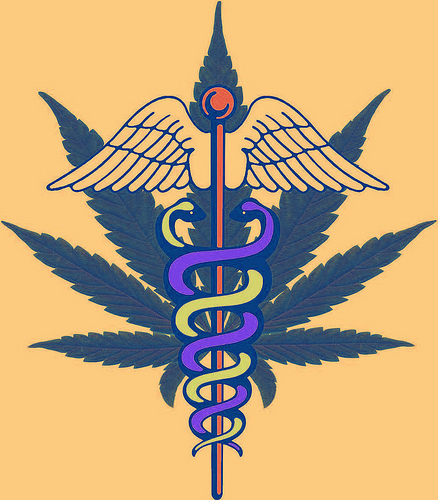Day by day, the veil of reefer madness is gradually and continually lifting. The once standard, poorly-held public opinion revolving about the herb seems to be shifting ever so quickly, especially within the last decade or so. With this has come an influx of studies looking into the potential medical applications of this plant’s multitudinous array of cannabinoids, terpenoids, and flavonoids.
The results have been most surprising! Studies keep pouring out of academia detailing a number of prospective uses for the future of cannabis, from its ability to cause apoptosis within cancer cells to its immunomodulatory, anti-inflammatory, anti-anxiety, and analgesic properties. Scientists are uncovering a wealth of exciting possibilities within the developing field.
The latest update to have caught the public eye, which was curiously enough covered by Fox news, suggests THC – the active compound in cannabis – has neuroprotective qualities that actually precondition the brain to better withstand potential and actual damage sustained to the area. Recent discoveries have been made signifying that THC indeed has protective effects against neurodegenerative diseases such as Parkinson’s, Huntington’s, Alzheimer’s, and multiple sclerosis.
Dr. Yosef Sarne of Tel Aviv University's Adelson Center for the Biology of Addictive Diseases, the man behind this latest find, initially theorized that extremely low dosages of THC – about 1,000 to 10,000 times less than what would be found in a typical joint – would induce minor damage preconditioning the brain to protect against more severe injuries (i.e. oxygen-deprivation, seizures, and toxic drug exposure), acting as a kind of vaccine against further complications.
To test this out, Dr. Sarne conducted an experiment in which he injected mice with a single low dose of THC several days before or after exposing them to brain trauma. The mice were examined for the duration of three to seven weeks whilst undergoing induced brain injury. Compared to mice who were not treated, Sarne and his research team established that the THC-injected mice had enhanced biochemical processes – possessing higher levels of neuroprotective chemicals within them – helping protect brain cells and preserve cognitive function over time. This enabled them to out-perform the control group in various learning and memory tests. Dr. Sarne’s past studies have even suggested that THC can positively affect cell signaling in the prevention of cell death and promotion of certain growth factors.
Currently, Dr. Sarne’s team is testing whether low doses of THC can help prevent heart damage during a heart attack by averting heart muscle cells from dying when deprived of oxygen. He proposes several other ways of using THC preventatively for patients withstanding cardiopulmonary heart-lung machines in open heart surgery by injecting a low dose pre-operatively as a countermeasure in case the brain gets deprived of oxygen.
With a seemingly – and increasingly – substantiated safety record, will cannabis one day replace some of today’s more conventional pharmaceutical approaches in the medical arena? Time will tell.
Image by TaliaMarisa, courtesy of Creative Commons licensing.















